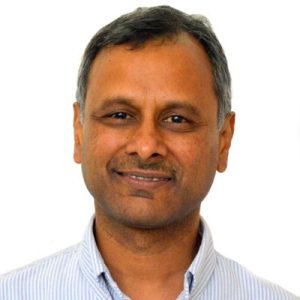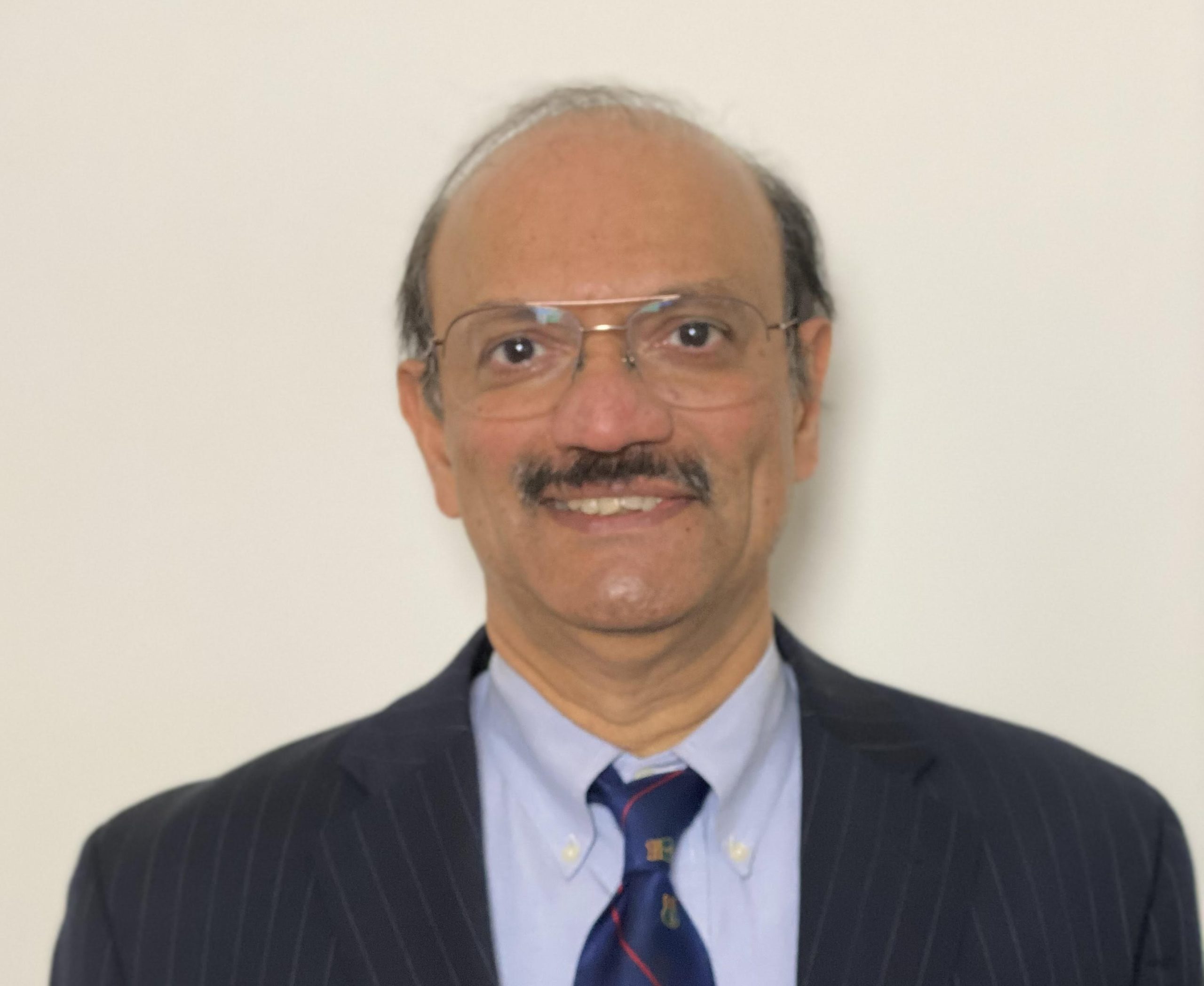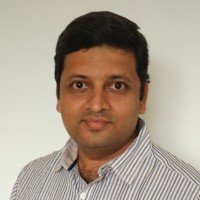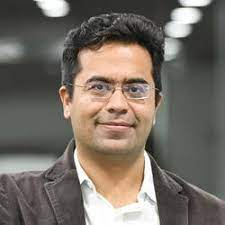🕞Thursday, 18th July 2024, 15:15 – 16:30
Title: The Impact of AI on the Future of Research and Academia
Generative AI is exceedingly good at certain skills traditionally considered a mark of human intelligence. AI is being used today for generating question banks and papers for subjects, summarising research papers, generating text for research papers, generating synthetic data, and generating code to analyze data. How should we adapt? Does peer-evaluation need to integrate AI? Do we need to re-invent what qualifies as original research? How should we assess course work? What should we be teaching students of the next generation? Do we have to make changes to the curriculum of computing as well as core engineering disciplines at undergraduate and postgraduate levels?
Recently, a team of faculty members chaired by Prof. Y. Narahari deliberated on the above issues and have come up with a report that includes recommendations for creative use of AI tools in teaching and research at IISc.
This panel discussion seeks to explore multiple aspects of the impact of AI on research and academia including:
(a) key skills for researchers and students in the future
(b) future of scholarly communication, journals, and publications
(c) the relevance of intellectual property and copyright in the age of generative AI
(d) the risk of growing inequality due to access to AI computing
(e) the potential for setting standards for AI in scientific research.
With an esteemed group of panelists from academia, industry and research, the panel will aim to synthesize diverse perspectives with an aim to find a path forward for researchers and academicians in the age of AI.
About Panelist: Manish Gupta
Manish Gupta is the Director of Google Research India and a co-lead of a technology area in Google Research with teams across India, US and Europe. Previously, Manish has led VideoKen, a video technology startup, and the research centers for Xerox and IBM in India. As a Senior Manager at the IBM T.J. Watson Research Center in Yorktown Heights, New York, Manish led the team developing system software for the Blue Gene/L supercomputer.
IBM was awarded a National Medal of Technology and Innovation for Blue Gene by the then US President Barack Obama in 2009. Manish holds a Ph.D. in Computer Science from the University of Illinois at Urbana Champaign.
He has co-authored about 75 papers, with more than 8,000 citations in Google Scholar with an H-index of 47, and has been granted 19 US patents. While at IBM, Manish received two Outstanding Technical Achievement Awards, an Outstanding Innovation Award, and the Lou Gerstner Team Award for Client Excellence. Manish is a Fellow of ACM and the Indian National Academy of Engineering, and a recipient of a Distinguished Alumnus Award from IIT Delhi.
About Panelist: Ram D Sriram
Ram D. Sriram is the Chief of the Software & Systems Division in the National Institute of Standards and Technology’s Information Technology Laboratory (ITL).
Prior to joining NIST, he was on the engineering faculty (1986-1994) at the Massachusetts Institute of Technology (MIT) and was instrumental in setting up the Intelligent Engineering Systems Laboratory. At MIT, Sriram initiated the MIT-DICE project, which was one of the pioneering projects in collaborative engineering.
Sriram has extensive experience in developing knowledge-based expert systems, natural language interfaces, machine learning, object-oriented software development, life-cycle product and process models, geometrical modelers, object-oriented databases for industrial applications, health care informatics, bioinformatics, and bioimaging.
Sriram has co-authored or authored nearly 300 publications, including several books on Artificial Intelligence. He has published in a wide range of journals in engineering, computer science, and healthcare fields. The papers he and his group wrote have won many recognitions and awards, including many best paper awards and most cited paper awards. Sriram received several awards including: an NSF Presidential Young Investigator Award (1989); ASME Design Automation Award (2011); ASME CIE Distinguished Service Award (2014); the Washington Academy of Sciences’ Distinguished Career in Engineering Sciences Award (2015); ASME CIE Lifetime Achievement Award (2016); CMU CEE Lt. Col. Christopher Raible Distinguished Public Service Award (2018); IIT Madras Distinguished Alumni Award (2021); and IEEE Reliability Society Lifetime Achievement Award (2023).
Sriram was a founding co-editor of the International Journal for AI in Engineering (1986), which later became Advanced Engineering Informatics. He also served on the Executive Committee of the ASME’s Computers in the Engineering Division for six years, including as its chair. Sriram’s other professional activities include the following: an associate editor of ACM Computing Surveys; advisory board member of the ASME’s Journal of Computing and Information Science in Engineering and ASTM’s Sustainable Manufacturing Systems; co-chair of NITRD’s Software Productivity, Sustainability, and Quality (SPSQ) group; President-Elect of the Washington Academy of Sciences; and federal representative to ONC’s Health IT Advisory Committee. He served as the chair of the 2021 IEEE Computer Society Fellow Evaluating Committee and on the 2023 Steering Committee, Information, Computing and Communication Section, AAAS.
Sriram has been elected a fellow of the following societies: American Institute for Medical and Biological Engineering (AIMBE), Asia Pacific Artificial Intelligence Association (AAIA), Association for Computing Machinery (ACM), American Society of Mechanical Engineers (ASME), American Association for the Advancement of Science (AAAS), Institute for Electrical and Electronics Engineers (IEEE, Life), Institution of Engineering and Technology (IET), International Council on Systems Engineering (INCOSE), Solid Modeling Association (SMA), and the Washington Academy of Sciences (WAS).
He is a Senior Member (life) of the Association for the Advancement of Artificial Intelligence (AAAI). In 2023, Sriram was elected as an honorary member of the Institute of Industrial and Systems Engineers (IISE).
About Panelist: B. Ravindran
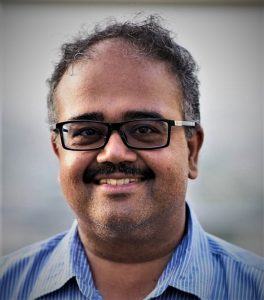
Balaraman Ravindran is the founding head of the Wadhwani School of Data Science and AI, the Robert Bosch Centre for Data Science & AI and the Centre for Responsible AI (CeRAI) at IIT Madras.
He is the Mindtree Faculty Fellow and Professor in the Department of Computer Science and Engineering at IIT Madras. He has held visiting positions at the Indian Institute of Science, Bangalore, India, the University of Technology, Sydney, Australia and Google Research. He has more than three decades of experience working in reinforcement learning, and his research interest spans learning on graphs and deep RL.
He received his PhD from the University of Massachusetts, Amherst and his Master’s degree from the Indian Institute of Science, Bangalore. He is also a Fellow of the Indian Academy of Engineering, Senior member of the Association for Advancement of AI (AAAI) and an ACM Distinguished Member.
About Panelist: Neeldhara Misra
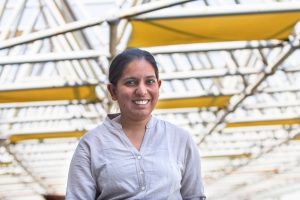
Prof. Neeldhara Misra is a Smt. Amba and Sri. V S Sastry Chair Associate Professor of Computer Science and Engineering at the Indian Institute of Technology, Gandhinagar. Prior to this, she was an INSPIRE faculty fellow at the department of Computer Science and Automation at the Indian Institute of Science. She completed her PhD from the Institute for Mathematical Sciences in 2012 in Theoretical Computer Science.
Her current research interests involve tackling computationally hard problems with parameterized algorithms. Her research interests include the design and analysis of algorithms and computational social choice. She is also interested in visualizations and other methods to communicate computational thinking at an elementary level.
About Panelist: Siddhartha Gadgil
Siddhartha Gadgil is a Professor of Mathematics at the Indian Institute of Science, Bengaluru. He has a PhD from California Institute of Technology and a BStat degree from the Indian Statistical Institute, Calcutta. Before joining IISc, he was a postdoctoral fellow at Stony Brook University and on the faculty of the Indian Statistical Institute, Bengaluru.
Siddhartha began his research career in topology and has worked for many years in this and related fields such as geometric group theory and Riemannian geometry. He has also applied topology to study Molecular Biology. In recent years the main focus of his work has been automated theorem proving, i.e., mathematics generated by computers.
About Panelist: Bharath Mohan
Dr. Bharath Kumar Mohan is the CEO of Sensara Technologies – a company that builds A.I. products for Television. Before this he was the Co-founder & CEO at Insiev and before that Bharath worked at Google India – in R&D as part of the Google News and Google Finance teams.
Bharath has spent about 15 years working in research in the areas of Content Discovery and Information Retrieval. He got his PhD on this topic at IISc, Bangalore.
About Panel Moderator: Praphul Chandra
Professor Praphul Chandra heads the Centre of Excellence in Artificial Intelligence & Decentralized Technologies at Atria University. He is an Accenture Luminary and serves as an advisor to deep tech startups in the domains of healthcare, finance & data privacy.
Previously, he has held faculty positions at Case Western Reserve University and Golden Gate University. His professional journey includes roles such as Founder CEO at Koinearth and Principal Data Scientist at Hewlett Packard. He holds a PhD from the Indian Institute of Science. His current research includes the use of Artificial Intelligence and Digital Public Infrastructure for tackling climate change.


